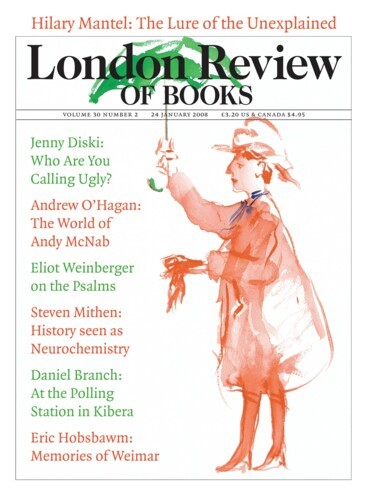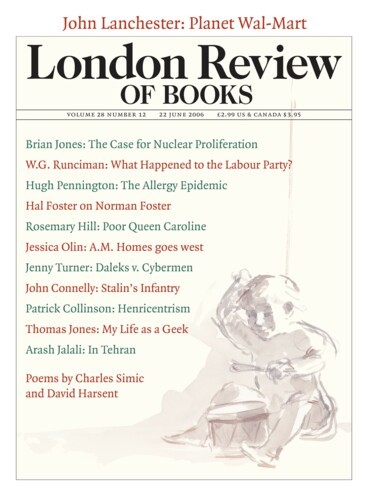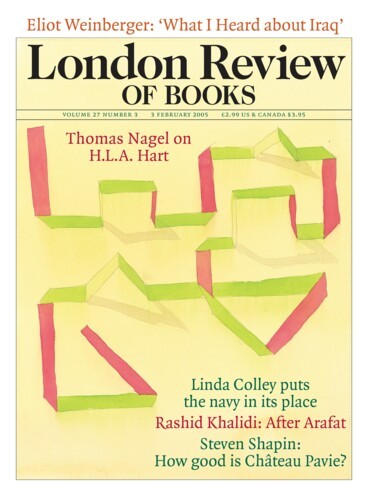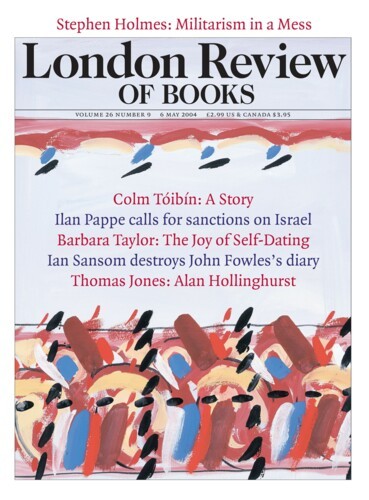W.G. Runciman
W.G. Runciman, a fellow of Trinity College, Cambridge, was the author of Very Different but Much the Same: The Evolution of English Society since 1714, among other books. He died on 10 December 2020.
Diary: Exit Blair
W.G. Runciman, 24 May 2007
Now that Tony Blair has almost stopped hanging around the office poisoning the chalice for his inevitable successor, the season for political obituaries is wide open. Not that it hadn’t already started, with a raft of more and less uncharitable interim biographies and Alan Franks, in the Times magazine of 31 March, talking of Blake Morrison’s South of the River coming out...
What happened to the Labour Party? The difference between then and now
W.G. Runciman, 22 June 2006
I am old enough to remember listening to the results of the general election of 1945 and sensing the surprise at the size of Attlee’s majority shared by Conservative and Labour supporters alike. And I remember the comment then made by one of my relations to the effect that the problems facing the country in the aftermath of the Second World War were such that no government would be able...
Central Questions
3 February 2005
What about the Roman Empire?
6 May 2004
Pieces about W.G. Runciman in the LRB
Mere Life or More Life? Bad Arguments
Glen Newey, 14 July 2011
Here are the nominees for the greatest bad argument in political theory. They are: Thomas Hobbes, for Leviathan; Karl Marx and Friedrich Engels, for The Communist Manifesto; and Plato, for the
Sing, Prance, Ruffle, Bellow, Bristle and Ooze: Social Selection
Armand Marie Leroi, 17 September 1998
For the past three years, the London School of Economics has been holding a seminar series, or rather a salon, snappily titled Darwin@LSE. These seminars are always invigorating, and never more...
Many Causes, Many Cases
Peter Hall, 28 June 1990
To those who first encountered British sociology in the early Seventies, as I did, the discipline seemed infinitely more exciting than its counterpart across the Atlantic. Perhaps exhausted by...
Societies
Perry Anderson, 6 July 1989
Under a flat, anonymous title and in serial guise one of the most exotic – even flamboyant – intellectual projects of recent years is coming to fruition. The first volume of W.G....
Reasons
Geoffrey Hawthorn, 1 April 1983
By the time he was 34, Thomas Macaulay had had a fellowship at Trinity, practised law for a year or two, sat in the Commons for four, and been appointed to a seat on the Supreme Council in India....
Read anywhere with the London Review of Books app, available now from the App Store for Apple devices, Google Play for Android devices and Amazon for your Kindle Fire.
Sign up to our newsletter
For highlights from the latest issue, our archive and the blog, as well as news, events and exclusive promotions.





